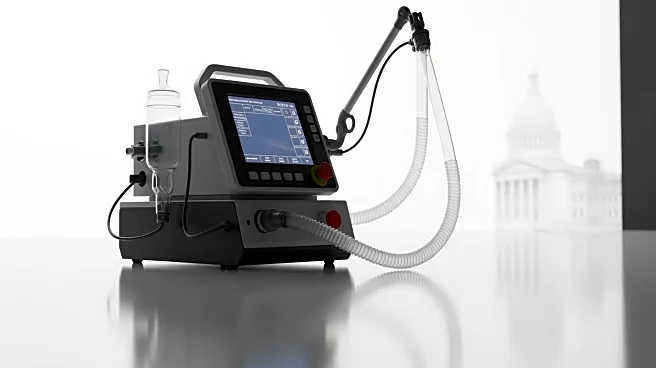What's Happening?
The Trump administration has launched a Section 232 national security investigation into medical equipment imports, a move that could potentially alter tariff rates across the medtech industry. This investigation follows
a series of tariff actions over the summer and is part of a broader strategy where Section 232 has been used to impose tariffs in other sectors, including pharmaceuticals and automobiles. Medical device trade groups and the American Hospital Association have expressed concerns, urging the administration to exempt essential medical goods from tariffs and to seek reciprocal agreements with trade partners.
Why It's Important?
The investigation could have significant implications for the medtech industry, potentially leading to increased costs for medical equipment and devices if tariffs are imposed. This could affect hospitals and healthcare providers who rely on these imports, potentially leading to higher healthcare costs for patients. The industry is closely monitoring the situation, as any changes in tariff rates could impact supply chains and the availability of medical goods. The outcome of this investigation could set a precedent for how national security concerns are balanced with healthcare needs.
What's Next?
The earliest potential actions resulting from the investigation are expected to occur in summer 2026. Stakeholders in the medtech industry, including trade groups and healthcare associations, are likely to continue lobbying for exemptions and favorable trade agreements. The administration's decision will be closely watched, as it could influence future trade policies and the approach to national security investigations in other sectors.
Beyond the Headlines
The use of Section 232 for medical equipment imports raises questions about the intersection of national security and healthcare policy. It highlights the challenges of ensuring access to essential medical goods while addressing security concerns. This development could lead to broader discussions on how trade policies impact public health and the need for strategic planning in the healthcare sector.









